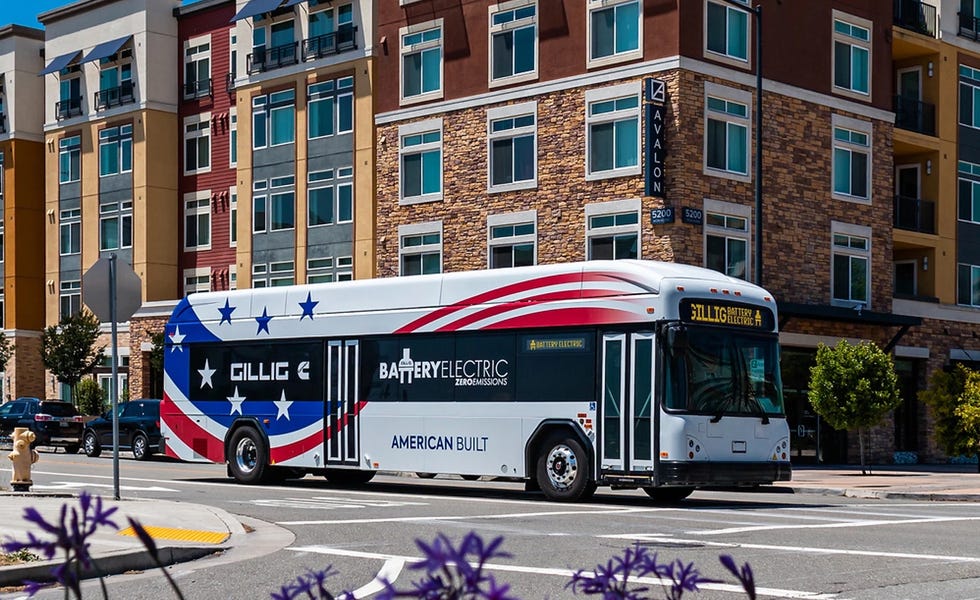
- It’s not easy keeping city passenger buses up and running, especially in cold climates. Swap out the diesel for electrons, and you’ve got a new set of challenges, like reduced range and slower charging times.
- Juneau was the first city in Alaska to buy an EV for its bus fleet, but repeated problems with a wiring harness have often kept it sidelined. Manufacturer Proterra said it is working on a more robust harness for the city’s bus.
- Even with this EV speed bump, Juneau has ordered another seven electric buses. This time, though, they will be made by Proterra competitor Gillig.
Colder climates can be a challenge for many electric vehicles to perform well in, but it’s not just the temperature causing problems for Juneau’s public transit system. The Alaskan capital announced in 2021 that it would add a 40-foot, all-electric passenger bus to its fleet, but the zero-emission model has recurring mechanical problems that force Capital Transit to park the bus in the garage for weeks on end.
The issue is a faulty wiring harness that the transit agency has repeatedly tried to fix but sometimes still disables one of the bus’s two motors. Alaska Public Media (APM) reports that the bus’s manufacturer, Proterra, still needs to supply Juneau with a replacement part.
Still, electric buses are coming to Alaska. While Juneau was the first to purchase an EV for its bus fleet, the city of Anchorage tested an electric bus in 2018. Smaller municipalities including Ketchikan and Metlakatla have also announced plans to add electric buses to their fleets.
Range Dropped with the Temperature
When Juneau’s lone electric bus was able to ferry passengers around town, drivers and city managers sang its praises. As might sound familiar to electric passenger-car drivers, bus drivers liked the quieter ride, and the bus needed less maintenance. In frigid weather, though, the 440-kilowatt hour (kWh) battery’s 210-mile range dropped to 100 miles, and the battery took longer to charge. Capital Transit superintendent Rich Ross told APM that the faulty harness and other issues aren’t putting Juneau’s transit authority off electric buses.
“There’s going to be learning curves along the way,” Ross said. “So while this bus has been a lemon—somewhat of a lemon—we also understand the technology is improving in leaps and bounds as time goes on.”
Proterra agrees.
“With the introduction of any new technology, we expect there to be some learning curves along the way,” the company told Car and Driver. “These learnings allow us to improve products. In this case, we are working to design and source a more robust harness to support Juneau’s bus.”
Juneau’s faulty bus is a 2020 model, and in 2022 Proterra announced that its 40-foot ZX5 electric transit bus could be equipped with a 738.0-kWh battery.
“This newer product is now the preferred choice for municipalities in northern climates to buffer against the additional heating requirements of extreme cold-weather days,” Proterra said.
Capital Transit has already ordered seven more electric buses, but this time they will come from one of Proterra’s competitors, Gillig. Gillig also manufactured the 17 diesel buses used in Juneau’s fleet. Gillig’s electric buses are already in use in places with intense winter weather, like Missoula, Montana. The company announced last month that it had received the highest-ever score for a battery electric bus, 89.5, at the Federal Transit Administration’s Bus Test Program in Altoona, Pennsylvania. Basically acing that reliability test meant that Gillig’s e-buses could qualify for purchase with federal funding dollars. Gillig has also announced that 45 transit agencies across the country would use money provided in part by the 2021 Bipartisan Infrastructure Investment and Jobs Act to purchase Gillig’s low- and no-emission buses. The Proterra bus remains in Juneau’s fleet.
This content is imported from poll. You may be able to find the same content in another format, or you may be able to find more information, at their web site.
#Buying #Lemon #Juneau #Alaska #Electric #Buses
Source link






